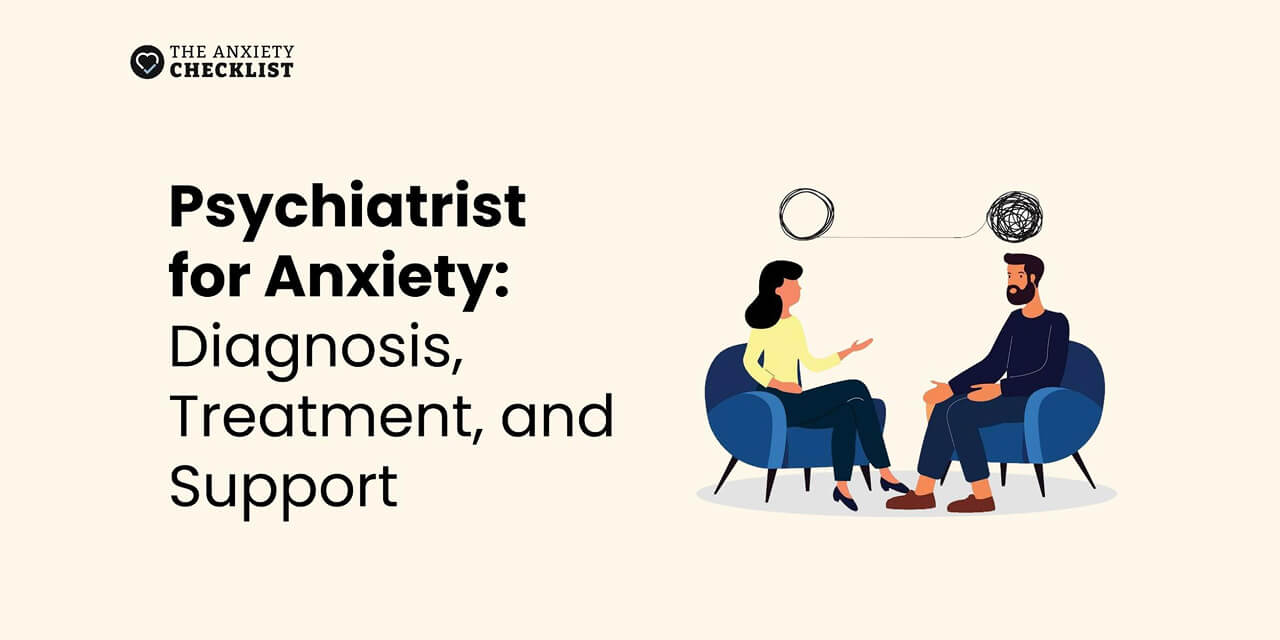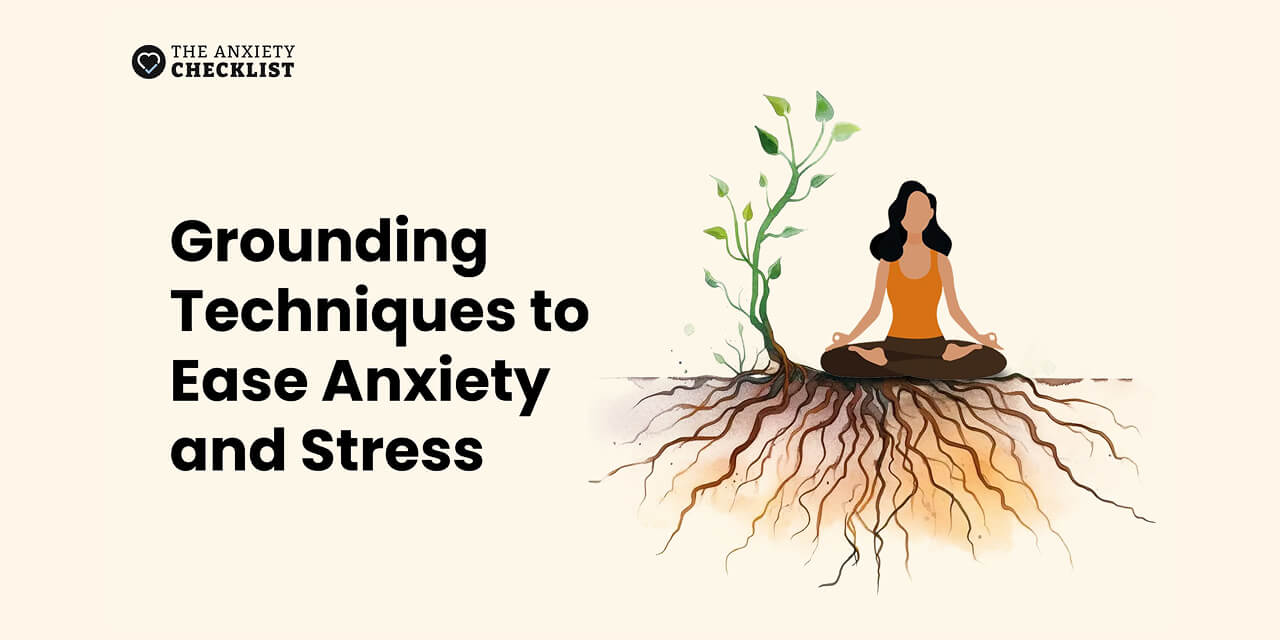When anxiety hits, do you know what to do next?
Learn how to calm your body, interrupt fear loops, and regain control step by step.
What Is a Psychiatrist and When Should You See One?
Why Seeing a Psychiatrist for Anxiety Can be Beneficial
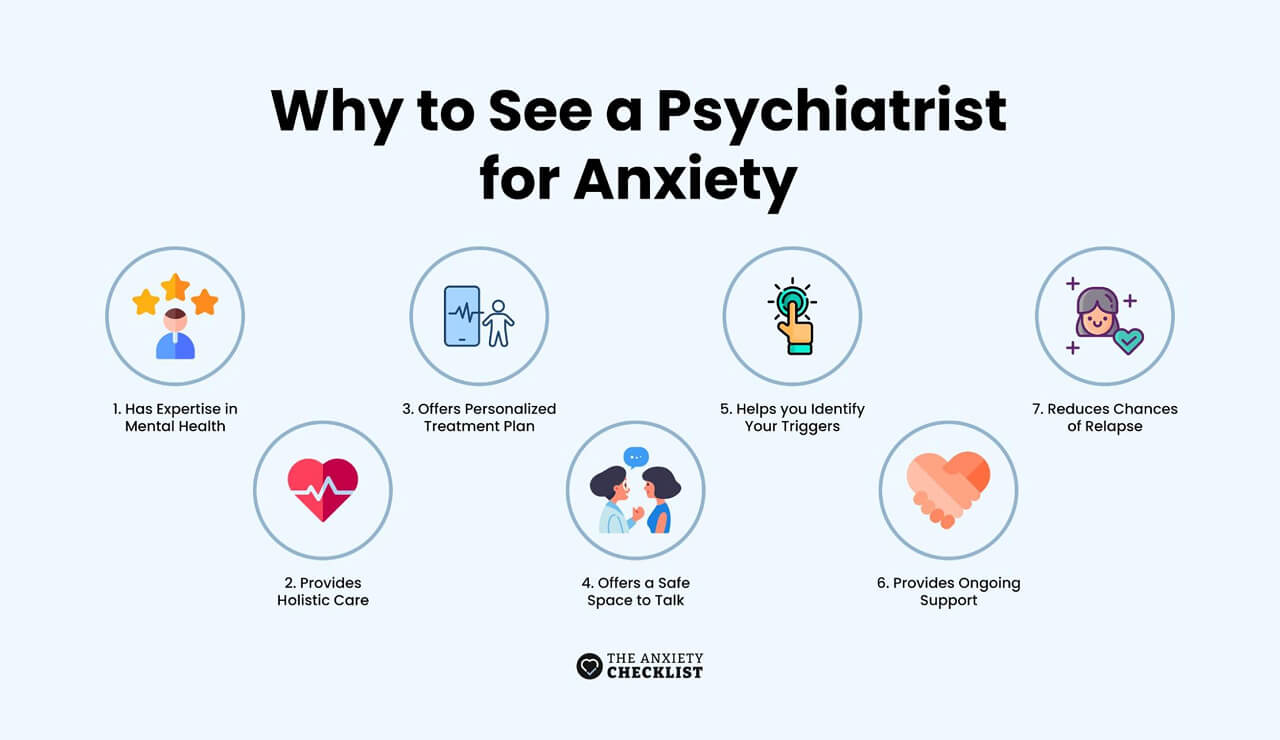
When dealing with anxiety, many people first visit a general physician. While they can prescribe medication for mild anxiety, they may not fully understand the complexities of anxiety disorders. In some cases, they might dismiss your symptoms as temporary stress rather than recognizing them as a deeper mental health concern.
A psychiatrist, on the other hand, specializes in mental health and knows how to distinguish between everyday stress and clinical anxiety. They don’t just prescribe medication—they evaluate your symptoms, identify triggers, and create a personalized treatment plan that may include therapy, lifestyle changes, and the right medication if needed.
Here are a few reasons why psychiatrists are well-equipped to better help you:
1. Expertise in Mental Health
Psychiatrists specialize in mental health which makes them more knowledgeable when it comes to dealing with mental issues. They have a deep understanding of anxiety disorders, including their causes, symptoms, and the most effective treatments.
Anxiety is quite complex. It can manifest in the following different ways:
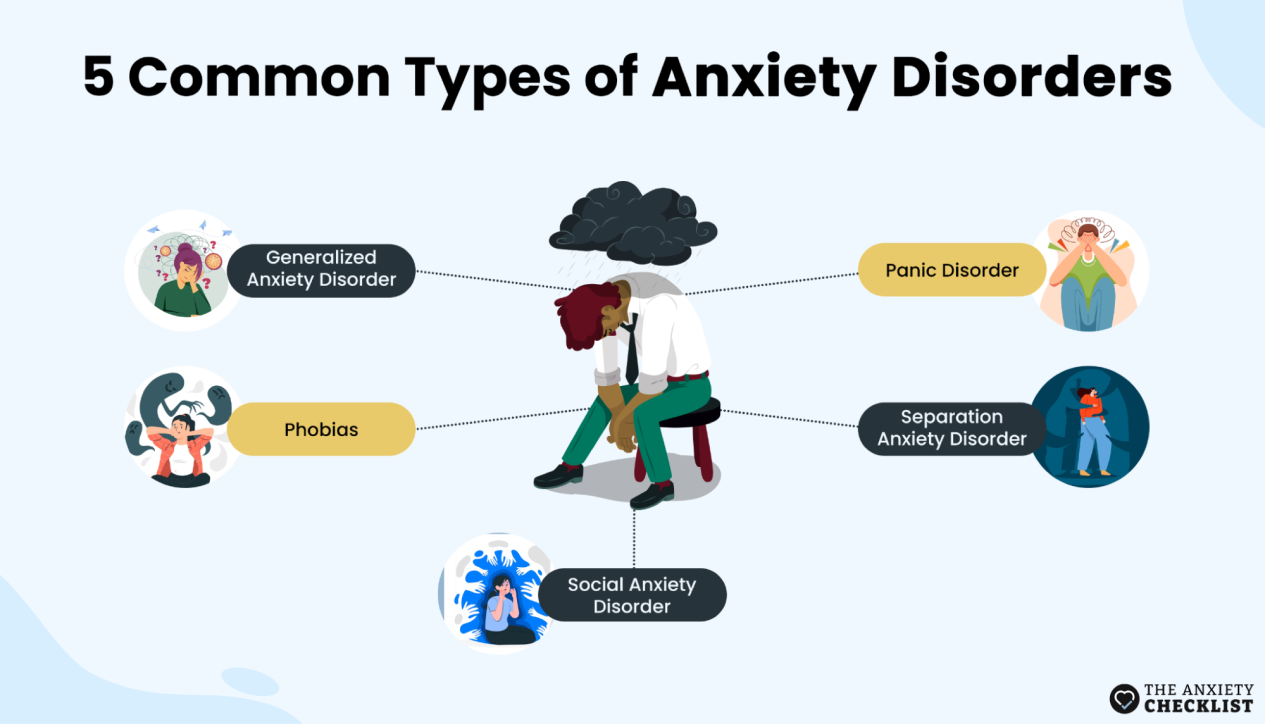
Because a psychiatrist for anxiety has invested years studying these signs and symptoms, they can recognize the subtle differences between these conditions.
It will help them determine which type of anxiety disorder you’re experiencing and provide medications and support to help you manage your anxiety.
2. Holistic Care
3. Personalized Treatment Plans
4. A Safe Space to Talk Without Judgement
5. Identify Your Triggers and Learn Coping Mechanisms
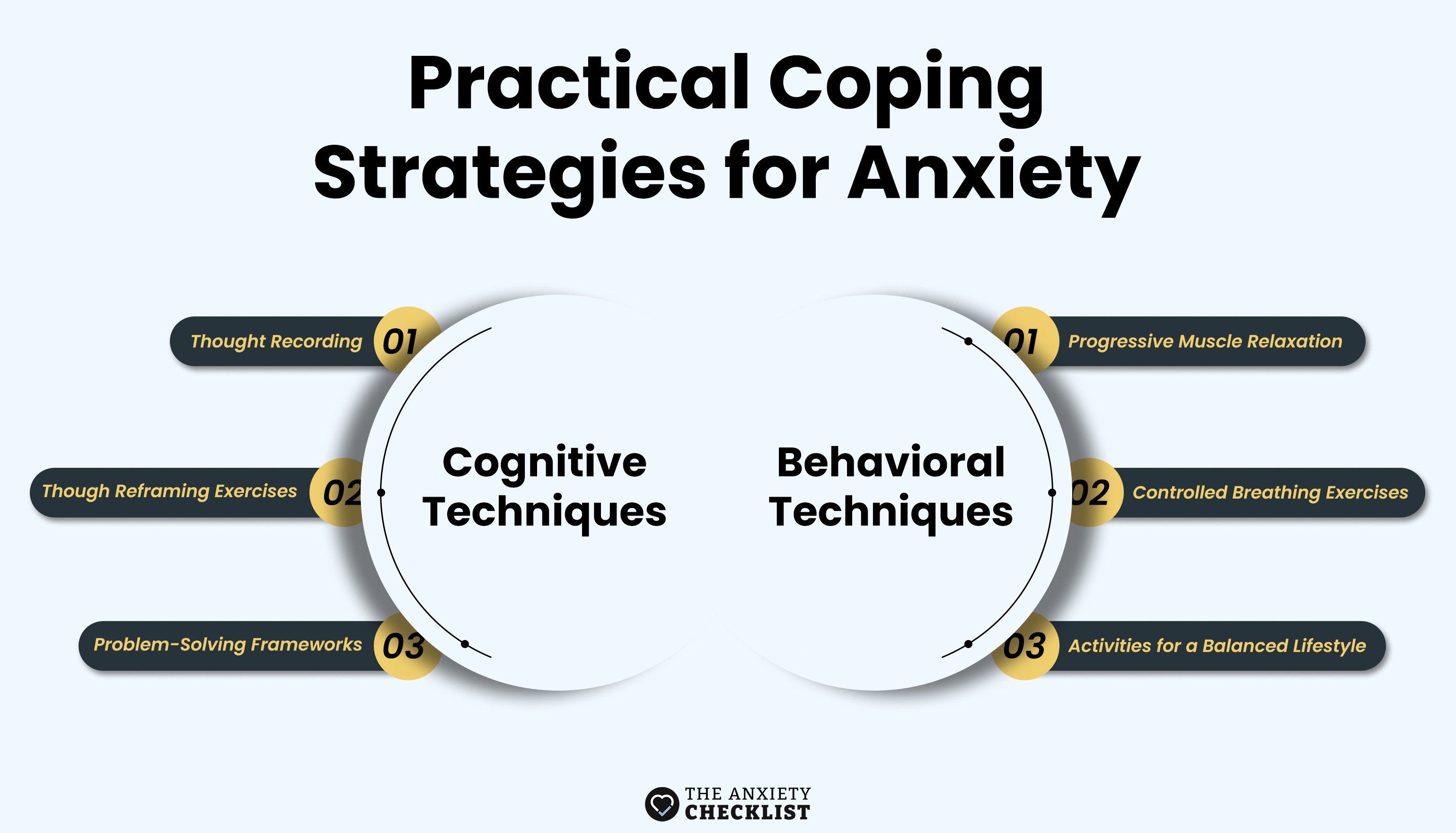
6. Ongoing Support and Monitoring
7. Reduce Your Chances of a Relapse
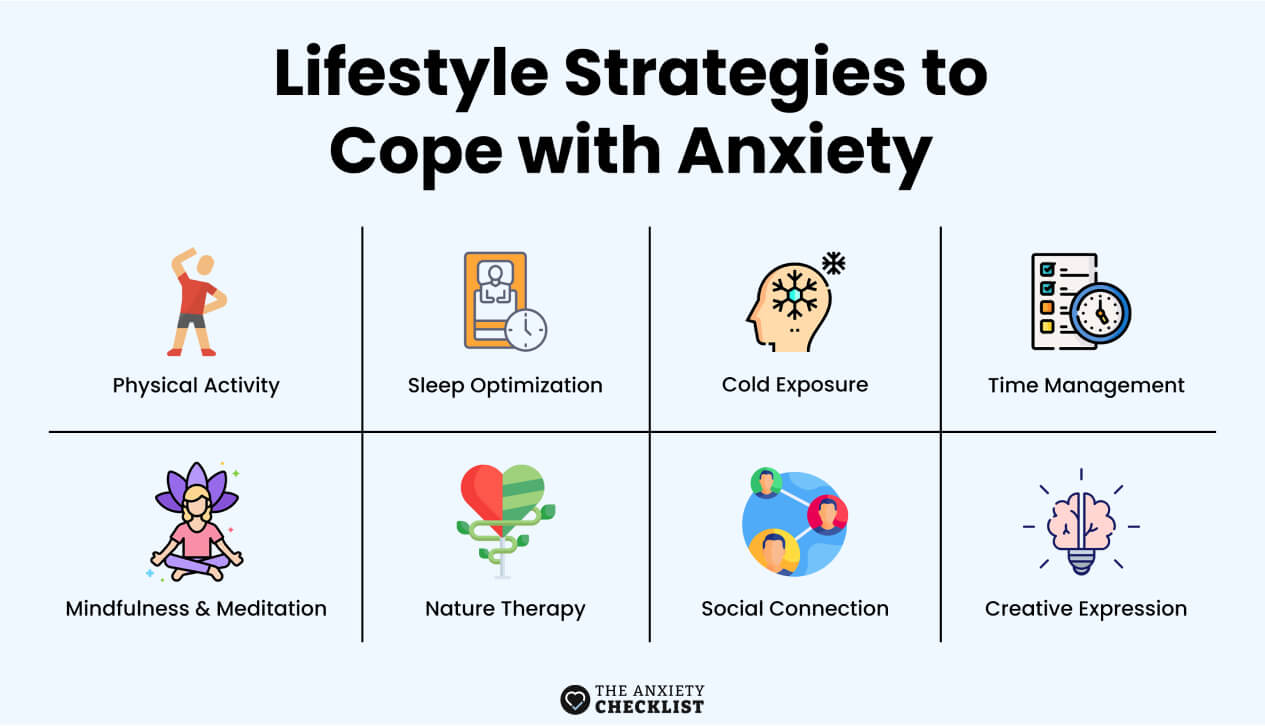
Through therapy, you’ll become more self-aware, as the psychiatrist will help you recognize early warning signs of anxiety, such as increased irritability. Also, you’ll feel more in control of your life, even amidst stressful situations.
How Does a Psychiatrist Diagnose Anxiety Disorder?
Unlike general stress, panic attacks, or occasional nervousness, an anxiety disorder requires thorough evaluation.
There’s no need to worry; the psychiatrist will ensure the diagnostic process is as comfortable as possible. Here’s a step-by-step guide to help you understand how a psychiatrist for anxiety makes an accurate diagnosis:
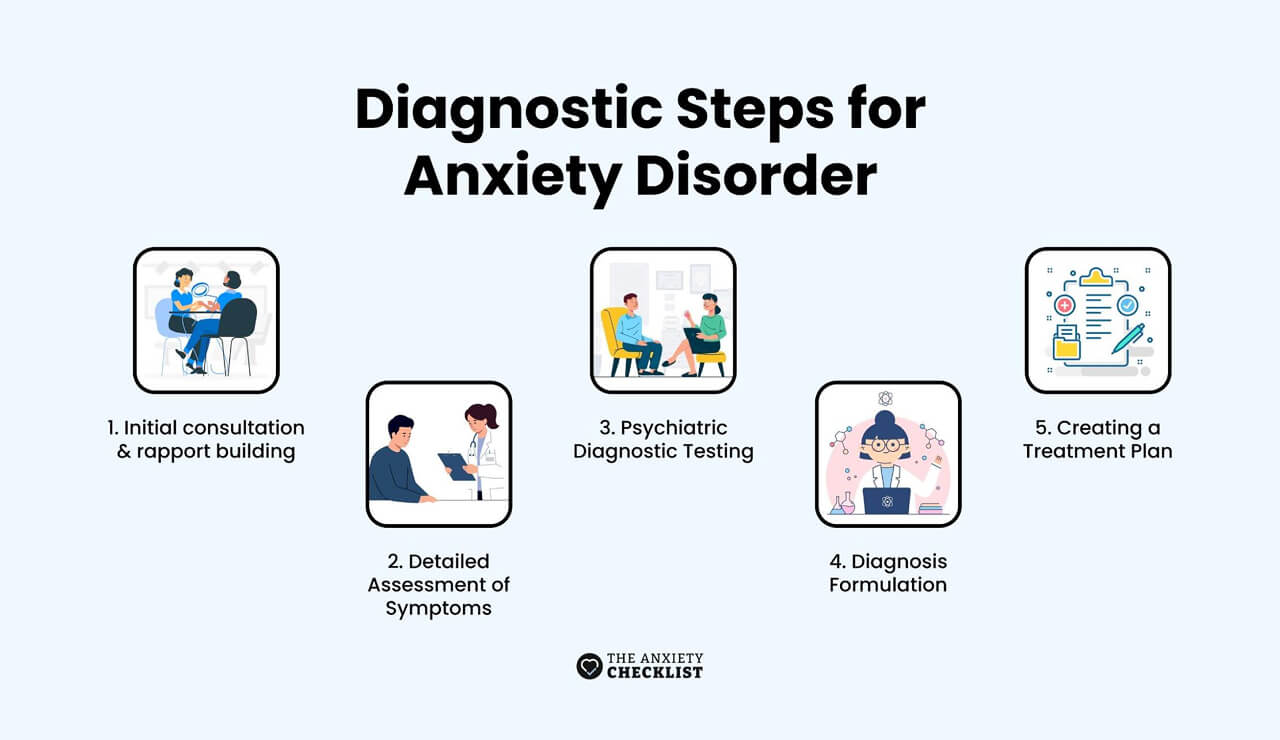
Step 1: Initial Consultation and Rapport Building
Step 2: Detailed Assessment of Symptoms
Once you’ve shared your concerns, you may feel more at ease. The psychiatrist will proceed to ask in-depth questions about your anxiety, such as:
Step 3: Psychiatric Diagnostic Testing
Psychiatrists have standardized tools for assessing the severity of your anxiety. But first, you must fill out a self-assessment questionnaire. This helps determine whether you have an anxiety disorder or are simply reacting to a particular event.
If the results indicate an anxiety disorder, the psychiatrist will conduct further assessments using one or more of the following tests:
Step 4: Diagnosis Formulation
After gathering the necessary data, the psychiatrist for anxiety will analyze it to determine whether you meet the requirements for an anxiety disorder. They will refer to the Diagnostic and Statistical Manual of Mental Disorders (DSM), the standard reference for diagnosing mental health conditions.
The criteria for diagnosis differ. However, your symptoms shouldn’t be caused by an underlying medical condition or medication. You should also find it difficult to control your worry, which should have lasted for at least six months.
Additionally, symptoms should significantly interfere with daily activities, such as work, school, or social interactions. Another important factor to consider is whether you have three out of these symptoms:
Step 5: Creating Your Treatment Plan
Once the psychiatrist confirms your diagnosis, they’ll discuss a personalized treatment plan for you. This typically includes psychotherapy, medication, and lifestyle and dietary changes. A psychiatrist for anxiety tailors this step based on your preferences, symptom severity, and overall health.
How Does a Psychiatrist Treat Anxiety Disorder?
Once you’ve been diagnosed with anxiety disorder, the psychiatrist will create a personalized treatment plan to help manage symptoms and improve your quality of life.
They would use one or a combination of these anxiety management options like medications, therapies, and counselling.
Medications for anxiety treatment are categorized as antidepressants, anti-anxiety drugs, and beta blockers.
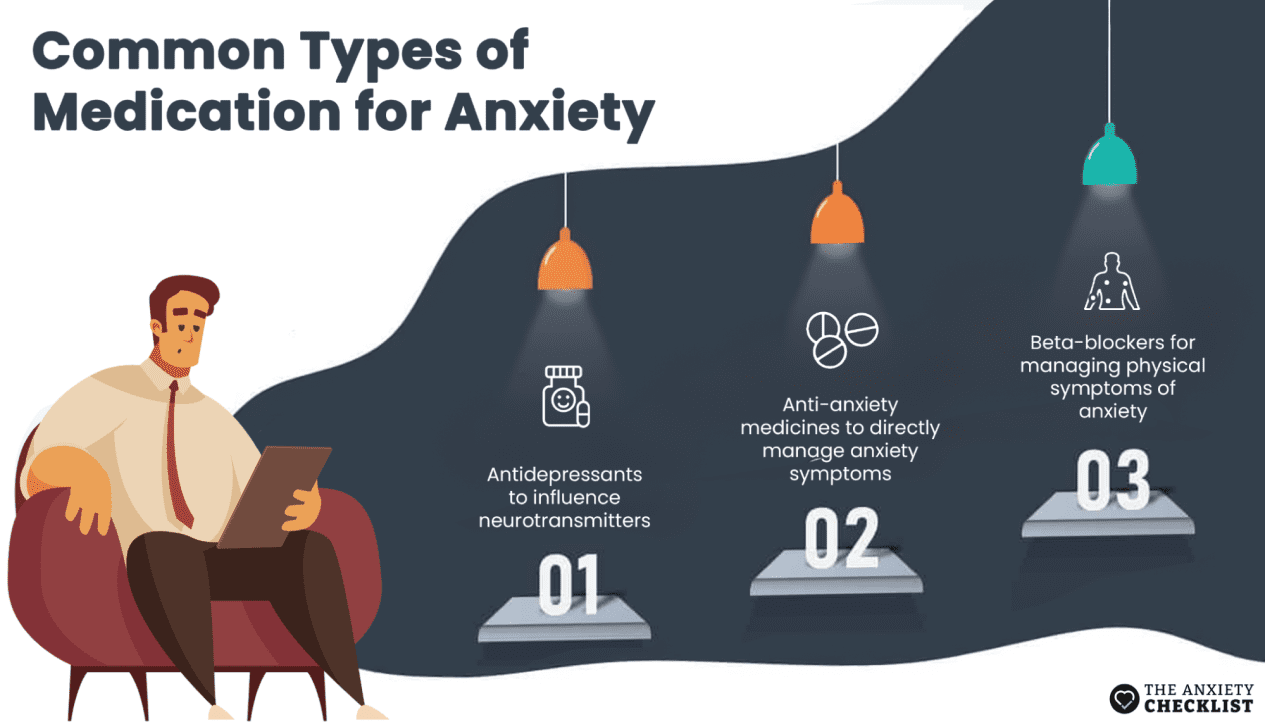
Your psychiatrist may prescribe the most suitable medication, depending on the severity of your anxiety. The most common ones for anxiety management include:
Alternatives to Manage Anxiety Without Medication
Since psychiatrists are medical doctors, their prescriptions are often covered by insurance when referred by a general practitioner. This makes it easier for anyone to be matched with a psychiatrist and start medication, sometimes without fully exploring other treatment options.
However, not everyone wants to manage their mental health with pills—and the good news is that you don’t have to!
There are other ways to cope, including psychotherapy, lifestyle changes, and holistic approaches that can make a huge difference. Let’s discuss them in detail:
Psychotherapy (Talk Therapy)
Persistent negative thoughts can worsen anxiety, making it harder to cope and communication can ease your restlessness to a great extent.
Using psychotherapy for anxiety can be highly effective as it allows you to express your thoughts and feel at ease.
It helps you figure out the root cause of your anxiety, develop coping skills, and change unhelpful thought patterns.
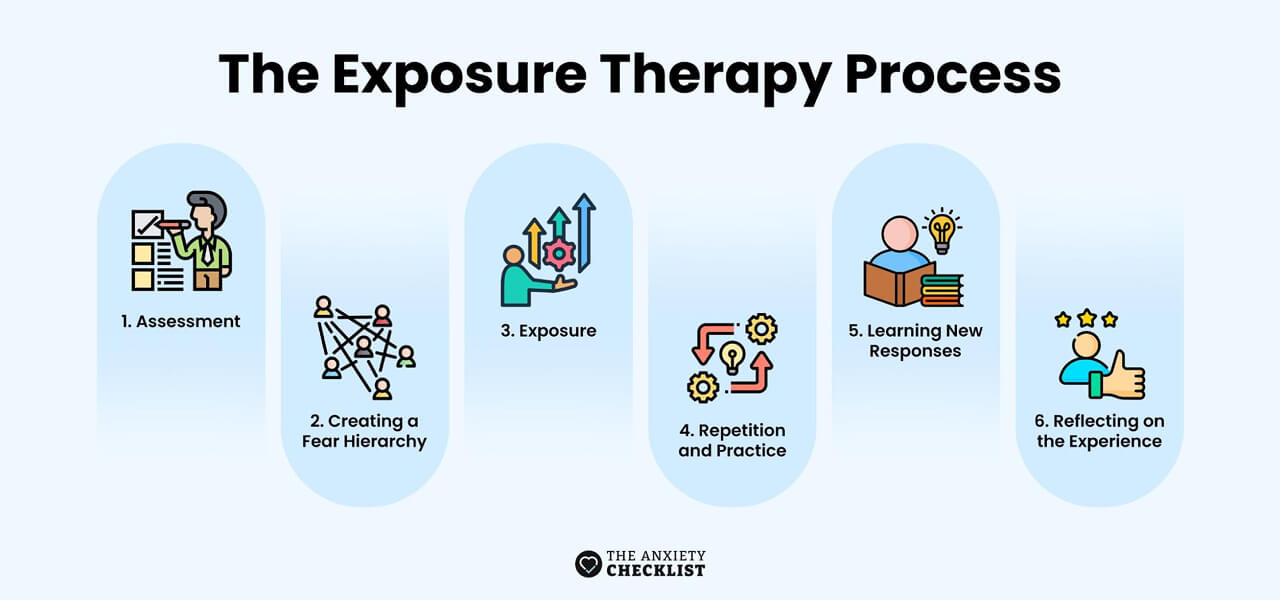
Here are the most effective types of therapy for anxiety:

Lifestyle and Dietary Changes
Incorporating movement into your daily routine—whether it’s a walk, yoga, or dancing—can help release tension and boost your mood.
Additionally, mindful eating, like choosing whole foods and eating without distractions, supports brain health and keeps energy levels stable.
Incorporate these little changes everyday to break free from the anxious thoughts and heal without additional support through pills or medications:
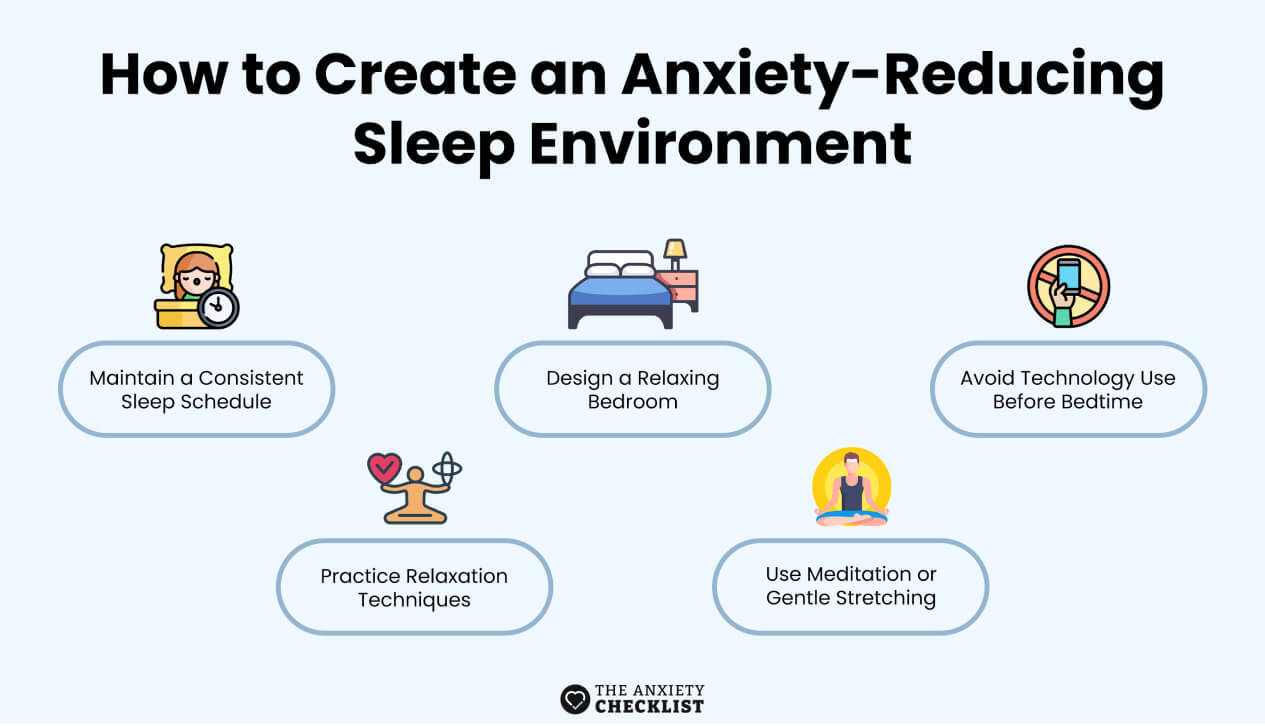
Choosing Between a Psychiatrist for Anxiety and a General Physician
When it comes to anxiety management, seeking help from a psychiatrist differs from seeing a general physician. Here’s how:
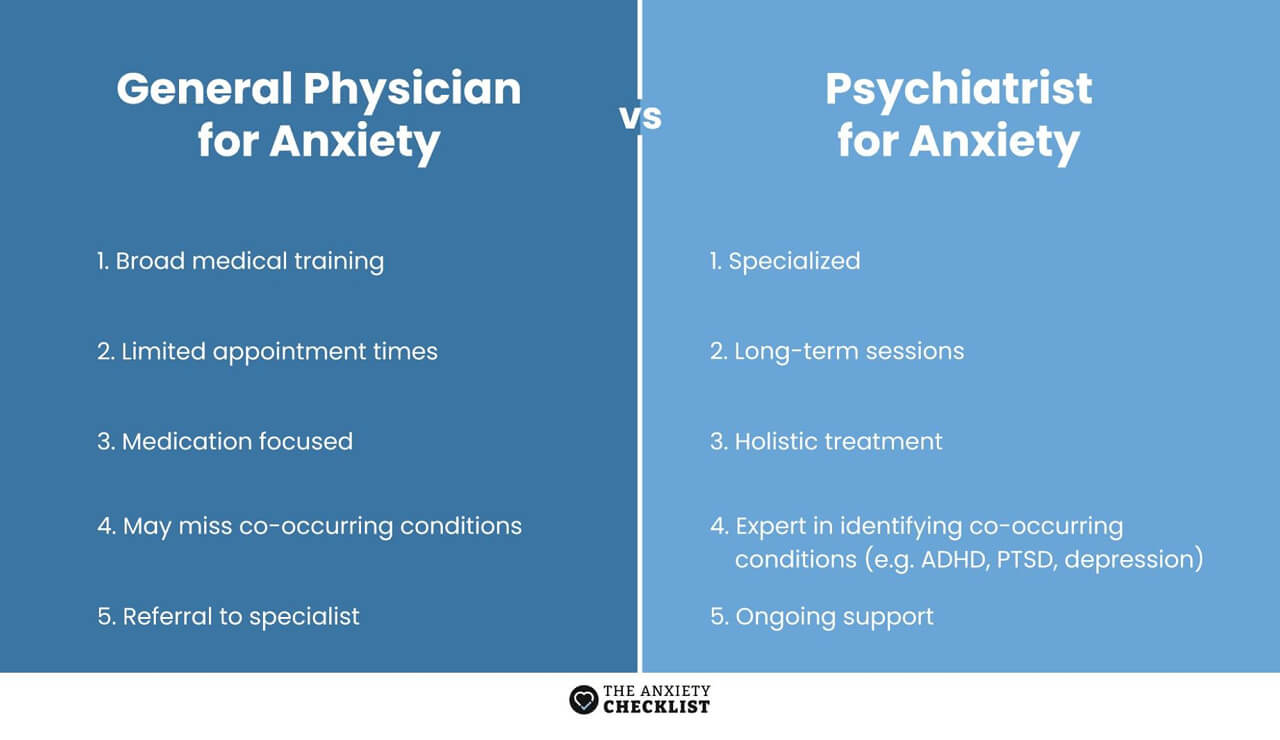
Frequently Asked Questions
While a psychiatrist is a medical doctor who can diagnose mental disorders and prescribe medication, often combining therapy with medical treatment.
Take the First Step Today
Previous Article
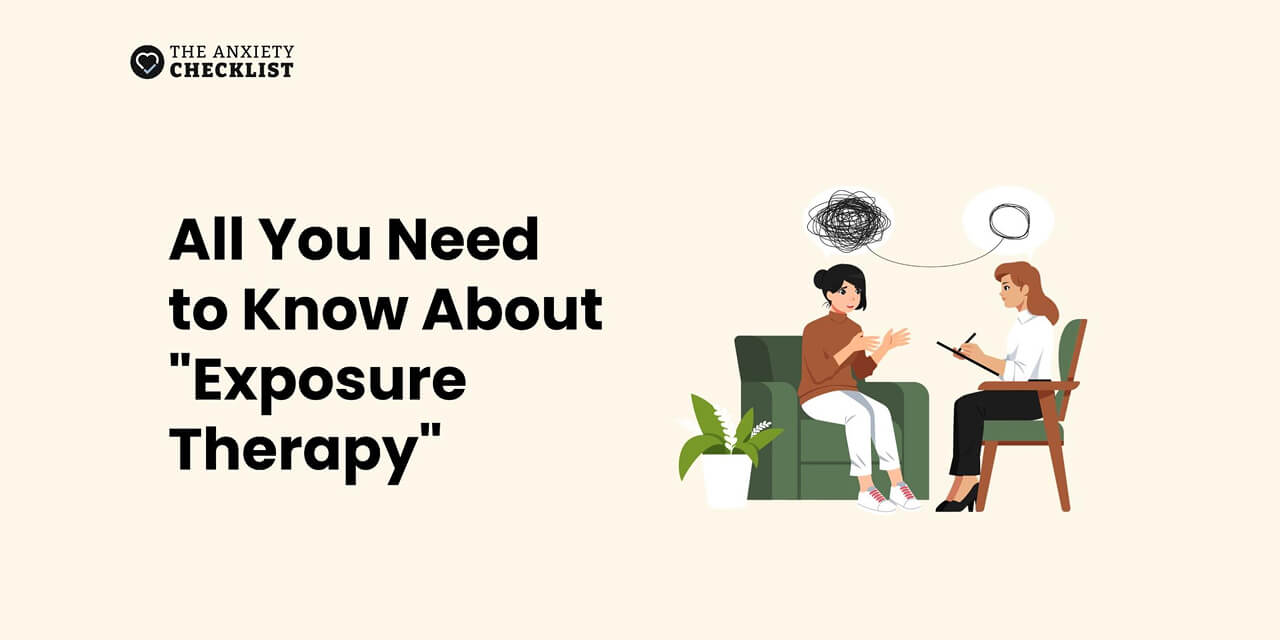
All You Need to Know About Exposure Therapy
If you are in a crisis or any other person may be in danger - don't use this site. These resources can provide you with immediate help.



